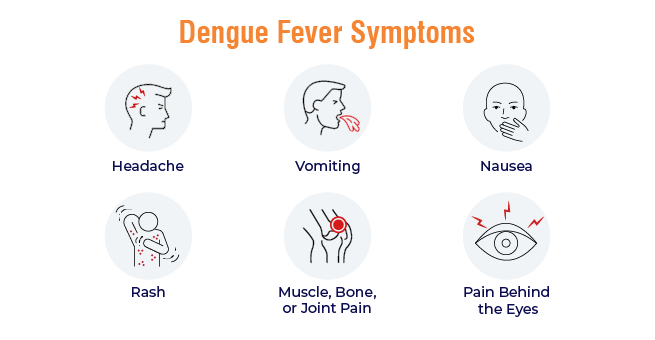Dengue Outbreak in Hyderabad

We all wait for the monsoon season to get a sigh of relief from the scorching heat and embrace the serene greenery. We especially enjoy watching our kids play with paper boats that float in the rainwater. But are we prepared or taking precautions for the various monsoon illnesses, including dengue?
Prevalence of dengue
Our country has witnessed a significant rise in the number of dengue cases, with a sudden rise in the number of cases in Hyderabad, over 9,000 cases reported in Karnataka, and over 3,000 cases in Maharashtra, followed by growing cases in other states. Dengue is a mosquito-borne illness, usually seen in tropical and subtropical areas.
While severe dengue, also known as dengue hemorrhagic fever, can cause catastrophic bleeding and a fast drop in blood pressure, mild dengue may just cause a high fever and flu-like symptoms. The disease is caused by the bite of an infected Aedes mosquito, which easily breeds in clean, stagnant water commonly found in our homes. Hence, it is very crucial to take all necessary steps to protect yourself.
The process of developing the vaccinations against dengue fever is still in progress. For the time being, avoiding mosquito bites and taking precautions to lower the mosquito population are the best approaches to preventing illness in locations where dengue fever virus is common.
Dengue Fever Symptoms
The flu and other symptoms that appear 4–10 days following a mosquito bite are frequently misdiagnosed as other ailments. The following signs and symptoms can accompany a high fever of 104 F (40 C) caused by dengue fever:
- Headache
- Muscle, bone, or joint pain
- Nausea
- Vomiting
- Pain behind the eyes
- Swollen glands
- Rash
While most people recover in about a week, some patients experience worsening symptoms that may even be fatal, which are commonly referred to as severe dengue, dengue hemorrhagic fever, or dengue shock syndrome. Severe dengue is characterized by damage to blood vessels and a decrease in platelets, or blood clot-forming cells, in the bloodstream. This may lead to shock, internal bleeding, organ failure, or even death.
Early warning signs of severe dengue fever, a potentially lethal illness, can appear quickly. When your temperature goes down, you should usually notice the following warning signs:
- Intense abdominal ache
- Continuous vomiting
- bleeding in your nose or gums
- blood in your vomit, faeces, or pee
- bleeding beneath the skin, which could resemble bruises
- Breathing difficulties or rapidity
- Fatigue
- Easily agitated or restless
Women who contract dengue fever during pregnancy may transmit the virus to their baby during childbirth. Furthermore, preterm birth, low birth weight, and foetal distress are increased risks for children born to moms who contract dengue fever during pregnancy.
Experiencing headache, muscle, bone, or joint pain, nausea, or vomiting? These could be signs of Dengue.
What Causes Dengue?
Dengue fever is caused by one of four dengue viruses. When a mosquito infected with the dengue virus bites you, the virus enters your bloodstream and replicates. Dengue fever does not spread through contact with an infected person but through mosquito bites. Later, when this infected mosquito bites another person, the virus is transmitted into that person’s bloodstream, causing an infection.
The virus can destroy parts of your blood that form clots and give structure to your blood vessels. Combined with certain chemicals produced by your immune system, this can cause your blood to leak out of the vessels, leading to internal bleeding and the life-threatening symptoms of severe dengue.
Dengue Fever Treatment & Management
Dengue fever is diagnosed through a blood test, which involves taking a sample of blood from a vein. The test helps to detect the presence of the dengue virus or other viruses that cause similar symptoms. Since there is no specific medicine to cure dengue fever; managing the symptoms is the only way to treat it.
Preventing mosquito bites and controlling the mosquito population remain the two most efficient methods of preventing the spread of dengue fever. The following advice may lessen your chance of getting bitten by mosquitoes if you reside in or visit a region where dengue fever is prevalent:
- Try to stay in a well-screened or air-conditioned room to protect yourself from mosquito bites. Though they can bite at any time of day, dengue-carrying mosquitoes are most active from dawn until sunset.
- Wear long sleeves, long pants, socks, and shoes when you’re in an area where mosquitoes are a problem.
- Use mosquito repellent and apply permethrin to your clothes, shoes, camping equipment, and bed nets. Use a repellent with at least 10% DEET concentration on your skin.
- The dengue-carrying mosquitoes usually reside in and around homes, where they spawn in standing water that can gather in objects like old car tyres. Eliminating mosquito breeding grounds will help reduce mosquito populations.
- Containers holding standing water should be cleaned and emptied at least once a week. In the interim, cover standing water containers.
- Repair holes in screens and, if at all possible, keep doors and windows closed to prevent mosquitoes outside your house.
- Stay away from dengue-prone locations if you’re expecting.
- Before departing on a trip, make sure to inquire with the CDC about any disease outbreaks that may be occurring in the area you will be visiting.
Is there any Dengue Vaccine in India?
According to recent reports, a dengue vaccine could potentially be ready by mid-2026, following the successful completion of the first phase of clinical trials assessing its safety. The next phases, focusing on the vaccine’s efficacy, are anticipated to commence soon.
When to seek medical attention?
If you’ve had a fever and any of the warning signs appear, or if you’ve recently been in an area where dengue fever is known to exist, get medical help right away. Severe stomach discomfort, vomiting, trouble breathing, or blood in your gums, nose, vomit, or faeces are warning indicators.
Make sure to see your physician if you have experienced minor signs of dengue fever along with a fever after travelling recently.
About Author –

























